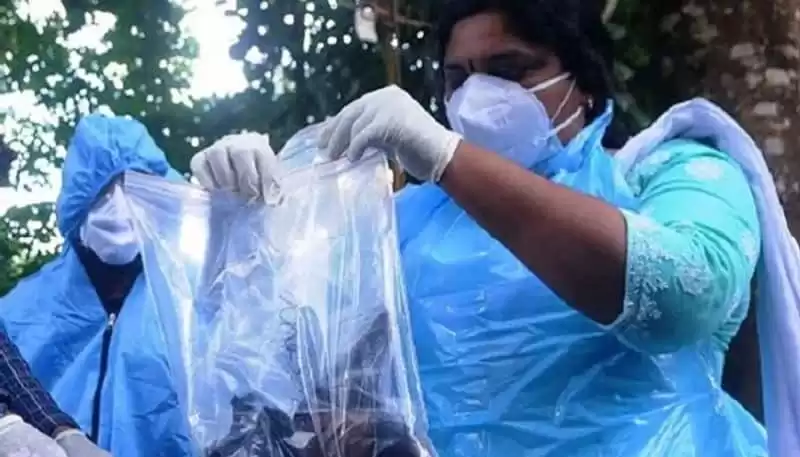Nipah virus Kerala: Bat samples collected, fruit growers worried
Possible source of Nipah outbreak in Kerala speculated to be bats, as victim lived near farmland with frequent bat sightings.
The tragic death of a 47-year-old individual on August 30 has been identified as the index case in the current Nipah virus outbreak in Kerala. This individual owned farmland near their residence in Maruthonkara panchayat, an area known for its areca nut trees and banana plants, which are frequented by bats. This observation has led both locals and health officials to speculate about the source of the Nipah outbreak in Kozhikode district. However, the exact cause of how the index case contracted the virus is still pending investigation by a central investigative team.
Fruit bats, also known as natural carriers of the Nipah virus, can transmit the virus through contact with their bodily fluids. Health officials have noted that the Bangladeshi strain of the virus can facilitate transmission from animals to humans and between humans.
A team of health officials has collected samples of bat urine, animal droppings, and partially consumed fruit from the victim's plantation and neighboring areas. The victim's residence is also close to the 300-acre Janakikadu forest, which is designated as an eco-tourist center and is home to various bat species. Interestingly, samples from this region had previously confirmed the presence of the Nipah virus during the 2018 outbreak, which claimed 17 lives.
The deceased individual, who was 47 years old, had previously operated a shop in a Gulf country and returned to Kerala about a year and a half ago to take care of their ailing father. During this time, they engaged in farming and managed their family-owned plantations, which included areca nut, banana, and other fruit trees. Their farmland is located approximately 100 meters from their residence, where bats are commonly seen hanging from the trees.
A senior health official, speaking anonymously, suggested that the victim may have come into contact with bat secretions by touching an areca nut on the ground. The official mentioned that bats in the area were examined, and samples of their saliva and blood will be collected for further analysis. The exact cause of how the virus was transmitted will only be determined after the test results are analyzed.
The Nipah outbreak has caused distress among fruit growers in the region, as concerns arise about the possibility of bats biting fruits.
In the meantime, the health department has released "route maps" of the two victims, detailing the locations they visited since the onset of symptoms. According to the route map for the 47-year-old victim, they started experiencing symptoms on August 22. On the 23rd, they attended a family event and visited a bank on the 25th. On the same day, they participated in prayers at a nearby mosque. Prior to their death on August 30 at a private hospital, they had sought medical attention at two different clinics.











Comments on Nipah virus Kerala: Bat samples collected, fruit growers worried